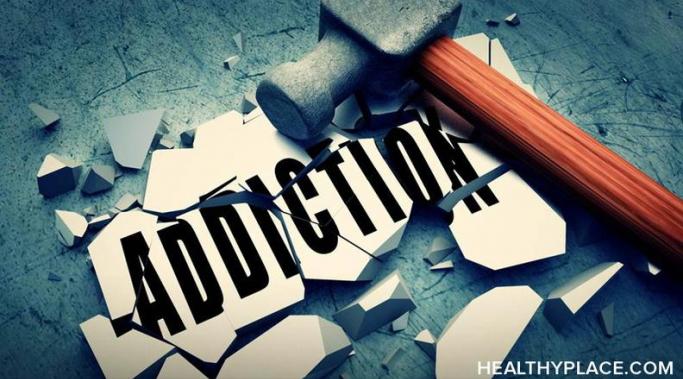Blogs
Many people with mental illness, including people with dissociative identity disorder (DID), manage the risk of suicide. In fact, people with DID carry the highest risk for suicide, as 70% of those diagnosed have a history of at least one suicide attempt. With such an increased risk, what can you do to manage the risk of suicide in DID?
Ever since I was diagnosed with schizophrenia and then schizoaffective disorder, mental health advocacy has become a very important cause for me. One of the ways I advocate for people with mental illnesses like schizophrenia and schizoaffective disorder is by participating in the annual National Alliance on Mental Illness (NAMI) walk in Chicago, a beautiful lakefront trek in the company of thousands of people.
I often missed the essential steps to binge eating disorder recovery because, when I binged, I felt overwhelmed with shame, guilt, and sadness. It did not occur to me there may be more below the surface. I attributed overeating to lack of self-control and used it as a way to berate myself for days on end. But when I started journaling, I began to see in black and white how I spoke to myself, my mood instability, and how much pain I was in without even acknowledging it. Because of journaling, I uncovered three essential steps to binge eating disorder recovery.
Defusion means becoming unstuck from something, in this case, anxiety. Anxiety often looms large. It consumes our thoughts and emotions and it impacts our actions, too. Anxiety sticks to us, and we to it when all of our time and energy, thoughts and feelings, actions or lack of action are fused with anxiety. To reduce anxiety, we need to separate ourselves from anxiety. In acceptance and commitment therapy (ACT), this is called defusion. Defusion can really help with anxiety.
A power greater than you can help with our addiction. A good example of insanity: doing the same thing over and over, expecting different results. That describes my addiction to a T. Of course, I knew that my actions caused myself and others great harm and yet I repeatedly chose those actions, thinking this time the result would be different. My life had become unmanageable and my very best efforts to abstain failed miserably. But once I acknowledged a power greater than me, God broke my addiction cycle and set me free.
Do you appreciate your successes, or does pausing to appreciate success scare you? Even though success is a very normal aspiration, feeling happy about a success (or feeling happy for any reason) can be scary for trauma survivors. The definition of success varies greatly between individuals and can even change during different stages of the same person's life. However, for those of us living with posttraumatic stress disorder (PTSD), the experience of success is sometimes a little extra complicated, even scary. I'm slowly learning to appreciate success in my life with PTSD.
If your verbal abuser is a narcissist, what are the signs? As we know, it's important to spot the signs of verbal abuse early on in a relationship. However, recognizing the issue is only part of the process; gaining insight into your verbally abusive relationship can be the start of the emotional healing process, but how do you begin to understand it? There are many complex reasons why verbal abuse happens, but personality disorders are among the most common. Realizing you're in a verbally abusive relationship with a narcissist can be a real light-bulb moment, so what are the signs?
Suffering a mental illness when you're young is extremely difficult and debilitating. When you’re young there is an immense amount of pressure to fit in as well as to act and to look a certain way. Judgment and stigma from peers can run high and be openly expressed. Many times, those who suffer from mental illness when they're young believe that something is wrong with them and don’t know how to “snap out of it.” As difficult as it can be to live with a mental illness when you're young, it is also hopeful to know that the suffering doesn’t have to last forever.
One of the most important things I've learned is that depression gets better, but recovering from mental illness is also a work in progress. I'm constantly getting better and then moving backward. It may be a cliche, but there is truth to the idea that mental illness recovery is a journey rather than a race. But in that journey, depression can get better.










I believe she will only be able to rid herself of her demons, and hopefully her BPD as well, when she's ready to confront the abuse of her father. If she can put the blame where it belongs, she may stop projecting that victim/perpetrator cycle on the present men in her life. These demons are a metaphor for the purgatory she has created for herself. That reality has consequences in the real world, but it need not be real in the tangible sense. Exorcising her demons will require the expenditure of real physical energy and probably the destruction of aspects of her personality. If this ever happens, and it's possible but not probable, then these demons will evaporate. They are only as real as one's personality is real. In short, reality is not the question, it's what you make of the things you feel to be real.